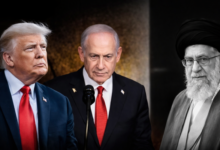Trump Creates New “State Sponsor of Wrongful Detention” Tag — Sanctions, Travel Limits Loom

The White House has unveiled a new hammer against what Washington calls “hostage diplomacy.” On September 5, 2025, President Donald Trump signed an Executive Order empowering the U.S. government to designate countries as “State Sponsors of Wrongful Detention”—triggering economic sanctions, export controls, visa bans, foreign-assistance limits, and potential travel restrictions for U.S. passport holders to those jurisdictions. The order sits on the legal rails of the Levinson Act and expands the toolkit first systematized under EO 14078 (2022). The White HouseStateFederal Register
Senior officials say the measure is designed to deter nations that detain U.S. nationals to extract political or economic concessions. Early reporting indicates reviews will prioritize countries frequently linked to “wrongful detentions,” including China, Iran and Afghanistan, though any designations will follow interagency vetting. ReutersThe Washington Post
What’s materially new?
- A formal country-level label (“State Sponsor of Wrongful Detention”)—analogous in posture to “State Sponsor of Terrorism”—that unlocks a menu of penalties across sanctions, visas, exports and assistance. State
- Travel policy levers: the administration signaled it could restrict U.S. travel to designated countries—an escalation beyond case-by-case advisories. The White HouseBloomberg
- Continuity + expansion: It builds on EO 14078 (Biden, 2022) and OFAC’s existing Hostages & Wrongful Detention sanctions program, but elevates the response to the country level, not just individuals/entities. Federal RegisterOFAC
Business & Travel Implications (Nigeria/Africa lens)
- Corporate travel & duty of care: Nigerian companies with U.S. executives or dual citizens traveling through potential hot spots should expect stricter approvals, rerouting, and insurance requirements (K&R, evacuation). Update travel policies now. The White House
- Compliance stack: Sanctions exposure expands. Banks, fintechs, oil & gas traders, logistics and universities should run enhanced screening for new country designations, not just names and vessels. Align OFAC screening rules and contract clauses to “wrongful detention” risk. OFAC
- Deals & conferences: U.S. speakers, sponsors or VC funds may decline events hosted in newly designated countries. Organisers across Africa should maintain venue/host optionality and remote participation plans. The White House
- Diaspora & cross-border families: Expect tighter visa regimes and airline advisories once designations land. Keep dual-national paperwork current and register travel with U.S. missions where applicable. The White House
The geopolitics (and the numbers)
The administration frames the move as a counter to rising “hostage diplomacy.” Independent trackers point out that Washington had already been using sanctions and designations under EO 14078; the new order broadens the aperture. Advocates and critics will parse results against past release statistics: media tallies note dozens of releases during the previous administration and Biden years, while cautioning that headline figures are contested and outcomes depend on opaque negotiations and swaps. The Washington Post
What to watch next
- The first country designations and Federal Register implementation notes (sanctions, licensing carve-outs). OFAC
- Travel guidance: State Department advisories may add a new “wrongful detention” flag to affected destinations. State
- Reciprocity risk: Targeted governments may mirror restrictions or slow consular access—raising the operational risk premium for journalists, NGO staff and business travelers. The Washington Post
BRANDECONOMY Takeaways
- Policy shift with teeth: Country-level designation + sanctions + travel limits = higher compliance stakes for global operators. The White House
- Boardroom action list (7 days):
- Map staff travel to potential targets; freeze nonessential trips.
- Refresh sanctions & watchlist screening to include the new label. OFAC
- Review insurance (K&R/med-evac) and emergency comms trees.
- Insert “wrongful detention” clauses in vendor and venue contracts.
- Prepare traveler briefings; require embassy registration for U.S. nationals. State
- Pre-clear media/NGO assignments with legal & security.
- Stand up a cross-functional incident cell (Legal, HR, Security, Comms).
- Map staff travel to potential targets; freeze nonessential trips.
Context you can use
- The Order (full text): White House says the U.S. will use “every tool available” to deter and punish wrongful detention and explicitly authorizes broad penalties & restrictions. The White House
- State Department note: confirms the creation of “State Sponsor of Wrongful Detention” and the sanctions/visa/export/assistance toolkit attached to it. State
- Precedent: EO 14078 (2022) remains the backbone for targeting individuals and networks; OFAC already runs a dedicated sanctions program under 31 CFR Part 526. Federal RegisterOFAC
Bottom line
For global operators—and Nigerians doing business with U.S. partners—the risk calculus just changed. Country-level designations for wrongful detention could alter flight plans, supply routes, sponsorship deals and staffing overnight. Build policy-aware resilience now; waiting for the first designation is waiting too long.












